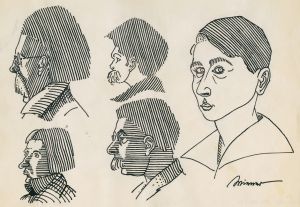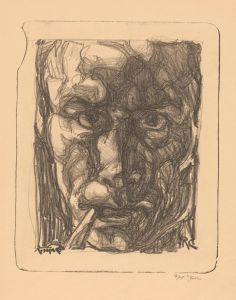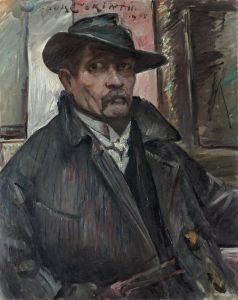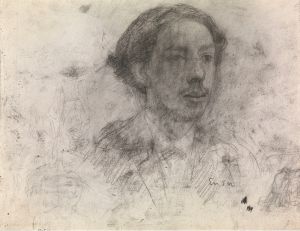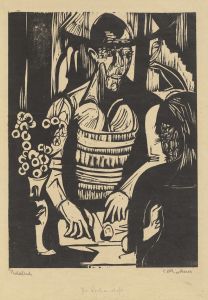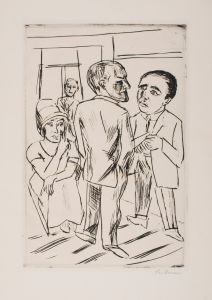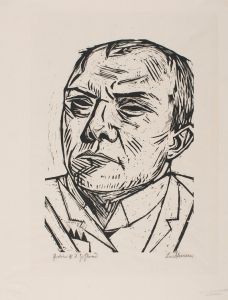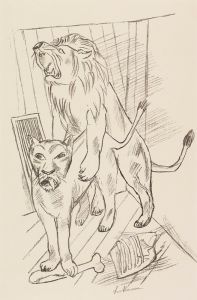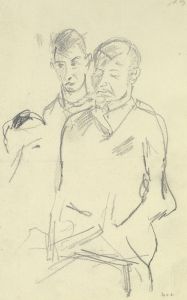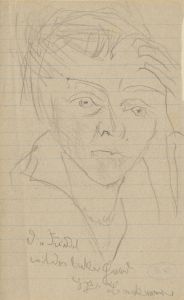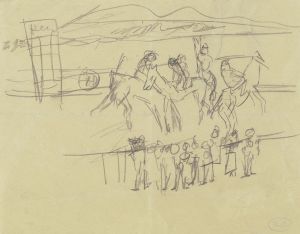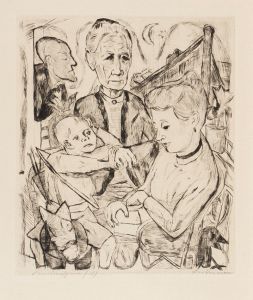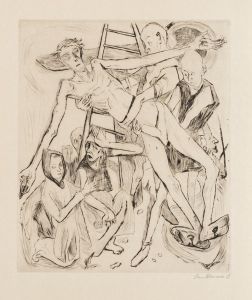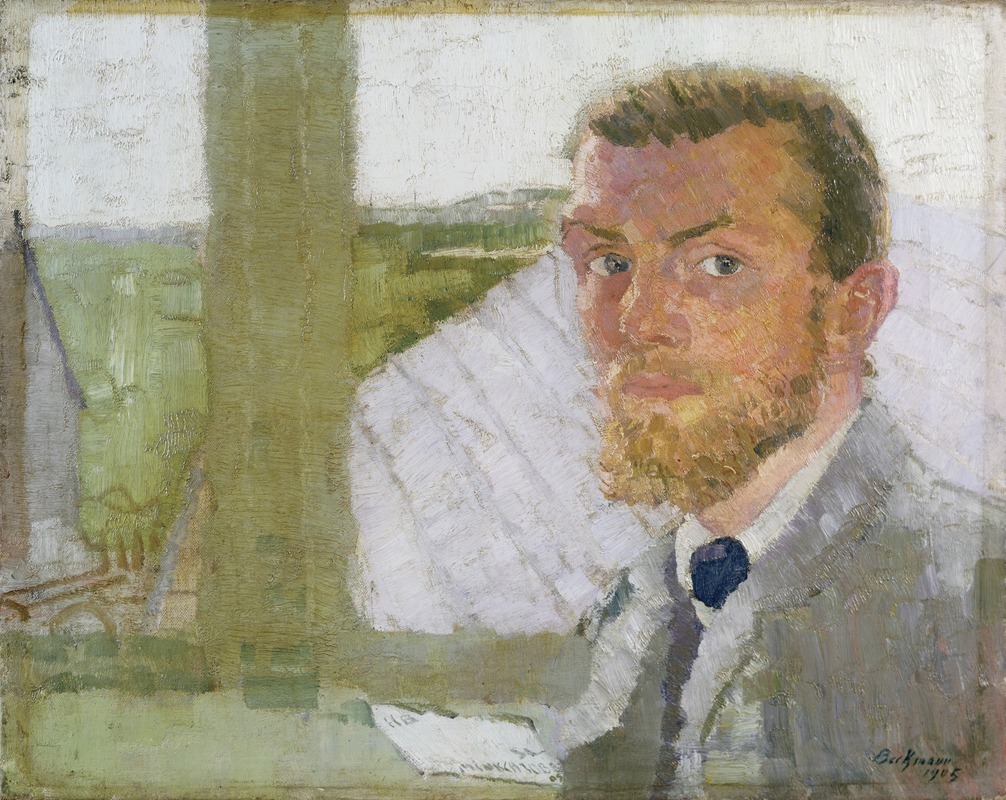
Self-Portrait
A hand-painted replica of Max Beckmann’s masterpiece Self-Portrait, meticulously crafted by professional artists to capture the true essence of the original. Each piece is created with museum-quality canvas and rare mineral pigments, carefully painted by experienced artists with delicate brushstrokes and rich, layered colors to perfectly recreate the texture of the original artwork. Unlike machine-printed reproductions, this hand-painted version brings the painting to life, infused with the artist’s emotions and skill in every stroke. Whether for personal collection or home decoration, it instantly elevates the artistic atmosphere of any space.
Max Beckmann's "Self-Portrait" is a significant work within the oeuvre of the German painter, who is renowned for his contributions to the New Objectivity movement. Beckmann, born in 1884 in Leipzig, Germany, was a pivotal figure in early 20th-century art, known for his expressive style and complex compositions. His self-portraits are particularly notable for their introspective depth and psychological intensity.
Beckmann created numerous self-portraits throughout his career, each reflecting different phases of his life and artistic development. These works often serve as a window into his personal experiences and the broader socio-political context of the time. His self-portraits are characterized by a bold use of color, dramatic lighting, and a strong sense of form, which together convey a powerful emotional impact.
The "Self-Portrait" in question is one of Beckmann's many explorations of his own image, where he often depicted himself with a penetrating gaze and a commanding presence. This particular work exemplifies his ability to blend realism with a more abstract, symbolic approach. Beckmann's self-portraits frequently include elements that hint at his inner thoughts and the external pressures he faced, such as the tumultuous political climate of Germany during the World Wars and the interwar period.
Throughout his career, Beckmann's art was deeply influenced by the events of his time. He served as a medical orderly during World War I, an experience that profoundly affected him and his work. The trauma and disillusionment he felt during and after the war are often reflected in the somber tones and intense expressions found in his self-portraits. Additionally, the rise of the Nazi regime in Germany had a significant impact on Beckmann's life and art. His work was labeled as "degenerate" by the Nazis, leading to his eventual emigration to the Netherlands and later to the United States.
In his self-portraits, Beckmann often employed a direct and confrontational style, inviting viewers to engage with the complexities of his identity and the broader human condition. His use of bold lines and stark contrasts creates a sense of immediacy and tension, drawing the viewer into a dialogue with the artist himself. Beckmann's self-portraits are not merely representations of his physical appearance but are also profound explorations of his psyche and the existential questions that preoccupied him.
Max Beckmann's "Self-Portrait" stands as a testament to his skill as an artist and his ability to convey deep emotional and intellectual content through his work. It reflects his ongoing quest for self-understanding and his engagement with the world around him, making it a compelling piece within the history of modern art.





